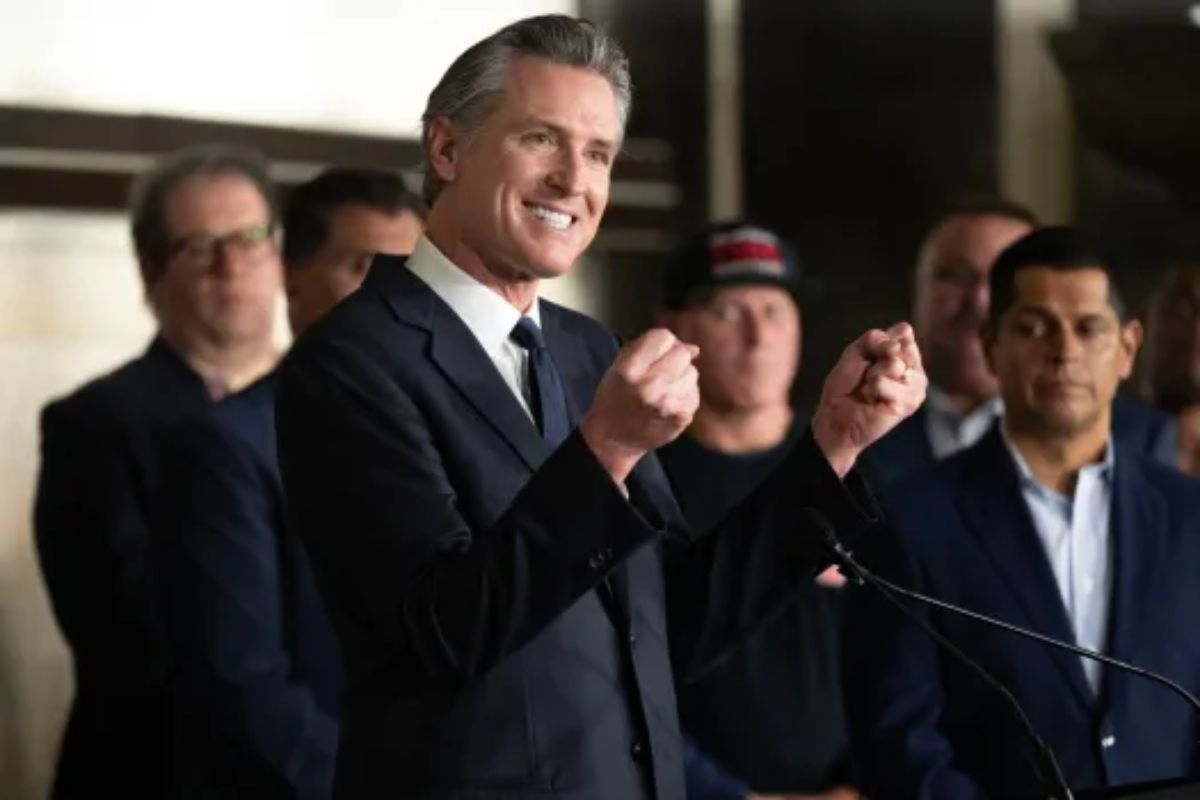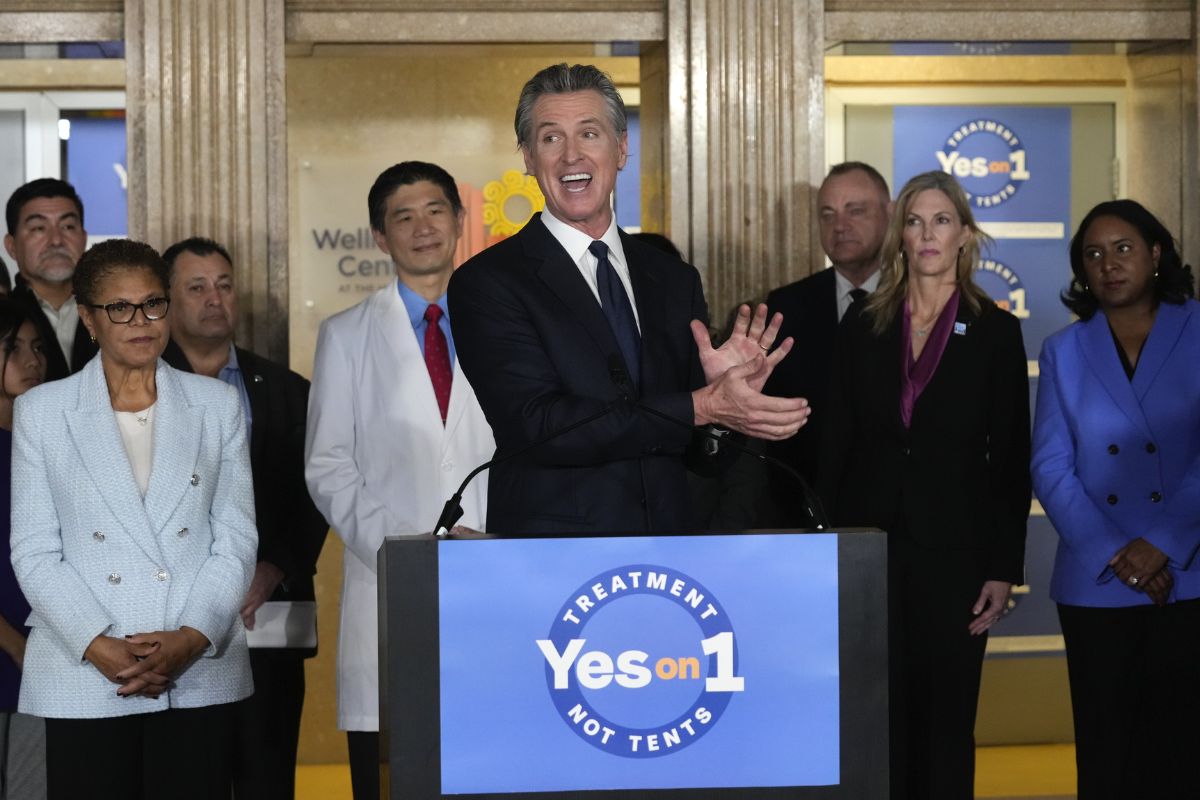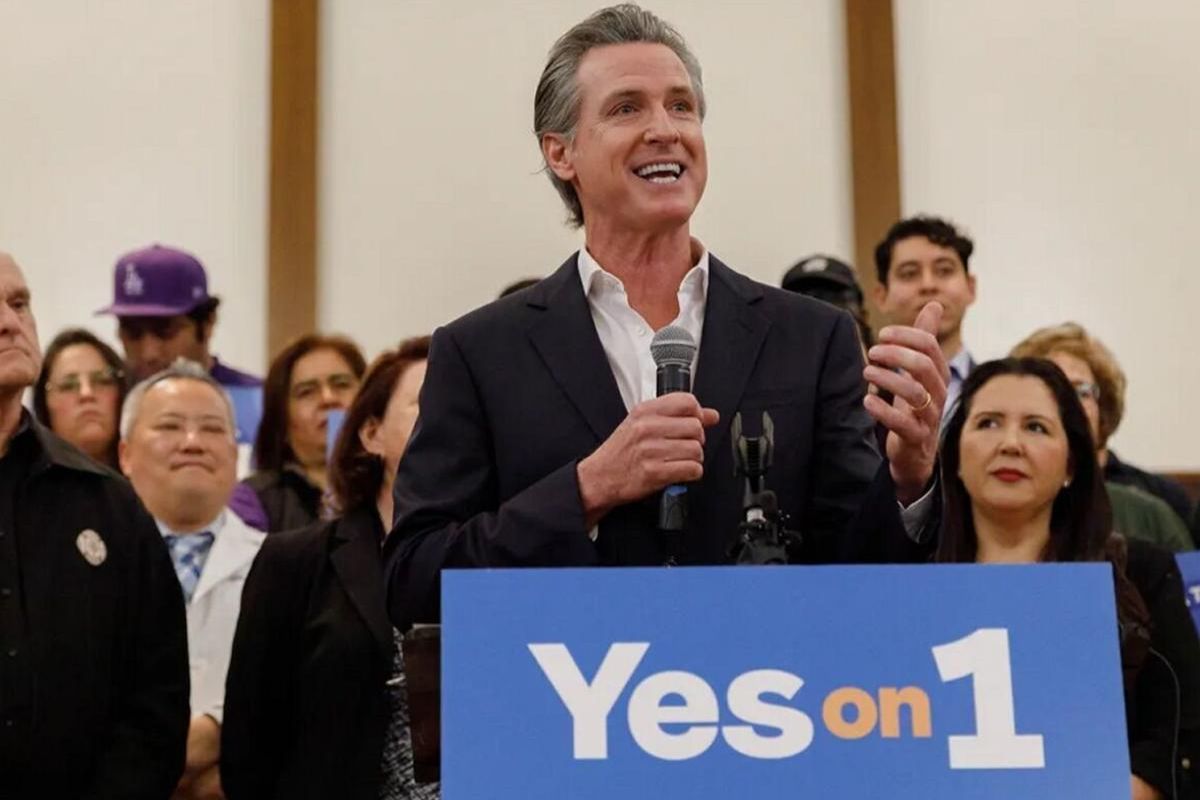Surprising Win for Newsom Proposition 1: Proposition 1 secured a narrow victory despite financial constraints, underscoring Governor Newsom’s dedication to mental health and homelessness issues in California Public sentiment was divided on expanding these initiatives, with concerns raised about budget management. The competitive Yes on 1 campaign highlighted the need for more housing and treatment facilities, despite fundraising challenges. The surprising win in the face of tight funds signals potential political implications for Newsom. Understanding the campaign dynamics and electoral challenges is essential. The aftermath of Prop 1 sheds light on the complexities of policymaking in a society with diverse viewpoints.
Uncertainty Surrounding Proposition 1
Amidst the post-Election Day analysis, the uncertainty surrounding Governor Gavin Newsom Proposition 1, aimed at expanding behavioral-health treatment and housing, loomed large. Despite initial optimism fueled by polling data indicating a significant lead, the fate of Prop 1 remained in question weeks after the ballots were cast. Ultimately, the measure passed by narrow margins, securing just 50.2% of nearly 7.2 million votes counted.
The close outcome of the Proposition 1 vote highlighted the divided opinions among Californians regarding the expansion of behavioral-health treatment and housing initiatives. While some voters supported the measure as an essential step towards addressing mental health challenges and homelessness in the state, others expressed concerns about the potential costs and effectiveness of such programs.
Governor Newsom’s push for Proposition 1 reflected his administration’s commitment to tackling the interconnected issues of mental health and housing instability. By proposing this ballot measure, Newsom aimed to provide vital support to vulnerable populations and address the root causes of homelessness. However, the tight margin of victory underscored the need for continued discussion and evaluation of the best approaches to improving behavioral health services and expanding access to affordable housing in California.
Public Ambivalence and Potential Political Ramifications
The outcome of the Proposition 1 vote not only revealed public ambivalence towards Governor Gavin Newsom’s mental-health reforms but also raised concerns about potential political ramifications for his administration. While the measure secured a surprising win, its underperformance highlighted a significant level of uncertainty and skepticism among the public regarding Newsom’s proposed changes to California’s Mental Health Services Act.
Proposition 1 aimed to overhaul the existing framework by raising bond money to enhance treatment beds and supportive housing for individuals struggling with mental health issues. However, opposition to the proposition expressed worries about the increased spending associated with the reforms and the potential misallocation of funds towards housing at the expense of mental health services. This opposition underscores the complex challenges faced by Newsom in balancing competing priorities within the mental health sector.
The public ambivalence observed during the vote suggests a broader sentiment of hesitation and questioning surrounding Newsom’s policies and leadership. The outcome not only serves as a barometer of public opinion on mental health reforms but also signals a potential shift in the governor’s popularity and the need for effective communication and engagement strategies to address concerns and build support for future initiatives. As Newsom navigates the aftermath of Proposition 1, the political ramifications of the measure’s reception may shape the trajectory of his administration and influence future policy decisions in the mental health arena.
Campaign Positions and Strategies
In light of the Proposition 1 results, the focus now shifts to examining the campaign positions and strategies employed by both sides during this closely contested battle for mental health reform in California. The Yes on 1 campaign emphasized the vital need for additional housing and treatment beds to combat homelessness and improve mental health services. By highlighting these key issues, proponents of Prop 1 aimed to garner public support for the initiative.
Despite facing significant fundraising challenges, the Yes on 1 campaign managed to keep the proposition competitive, illustrating the intricacies of maneuvering California’s political landscape. The unexpected tight race demonstrated that financial advantages do not always guarantee a landslide victory in hotly contested campaigns.
On the other hand, opponents of Prop 1 likely utilized different strategies to counter the Yes on 1 campaign’s messaging. Understanding the opposing arguments and tactics is essential to thoroughly analyzing the dynamics of the Proposition 1 campaign.
The outcome of the Prop 1 vote suggests that campaign strategies and messaging play a critical role in influencing public opinion and shaping electoral results. Moving forward, a detailed examination of the positions and strategies employed by both sides will provide valuable insights for future mental health reform efforts in California.
Electoral Dynamics and Challenges
Traversing the intricate web of electoral dynamics and challenges presents a formidable task for stakeholders seeking to comprehend the implications of the recent Proposition 1 results in California. The interplay of various factors shapes the electoral landscape and influences the outcomes of initiatives such as Prop. 1.
Here are three key points to ponder:
- Partisan Influence: Low-turnout elections tend to favor Republican voters, creating an additional hurdle for progressive initiatives like Prop. 1. Understanding how partisan dynamics impact voter turnout and support is vital for future electoral strategies.
- Political Repercussions for Newsom: The surprising win for Prop. 1 despite tight funds suggests that Governor Newsom may face political repercussions. It indicates that relying solely on his brand may no longer guarantee easy victories in future initiatives or elections.
- Implications for Progressive Agenda: The outcome of Prop. 1 sheds light on the challenges progressive agendas face in garnering support and maneuvering the complex electoral landscape. It underscores the need for a strategic approach that contemplates electoral dynamics and challenges to drive success.
Community Division and Policy Implications
Traversing the aftermath of the surprising win for Newsom’s Prop. 1 reveals a deep-seated division within the mental-health community and prompts a critical examination of the ensuing policy implications. The measure’s passage, while a victory for proponents of increased mental-health funding, has sparked concerns among some mental-health advocates regarding the potential rise in involuntary treatment. This division underscores the intricate and multifaceted nature of mental-health policy, where balancing access to care with individual autonomy presents a challenging conundrum.
The discord within the mental-health community highlights the need for policymakers to navigate these intricate issues delicately. While increased funding can enhance resources for mental-health services, the potential implications of expanded involuntary treatment raise valid ethical and legal concerns. Addressing these divergent viewpoints necessitates a thorough approach that considers the varied needs and perspectives within the mental-health landscape.
Moreover, the fallout from Prop. 1’s passage underscores the broader political dynamics at play in California’s governance. As policymakers grapple with implementing the new provisions, they must carefully weigh the competing interests and potential consequences of their decisions. This pivotal moment not only illuminates the intricacies of mental-health policy but also underscores the challenges of enacting effective and equitable legislation in a diverse and evolving society.
ALSO READ: Chevron Shell-shocked: $13M Fine for California Oil Spills!
News in Brief
Surprising Win for Newsom’s Prop. 1 Despite Tight Funds: Governor Gavin Newsom’s Proposition 1 narrowly passed, securing 50.2% of nearly 7.2 million votes despite initial financial constraints. This outcome underscores Newsom’s dedication to mental health and homelessness issues in California. However, public sentiment remains divided, with concerns raised about budget management. The competitive campaign highlighted the need for more housing and treatment facilities, despite fundraising challenges. The tight race signals potential political implications for Newsom, while understanding campaign dynamics and electoral challenges is essential. The aftermath sheds light on the complexities of policymaking amidst diverse viewpoints.



